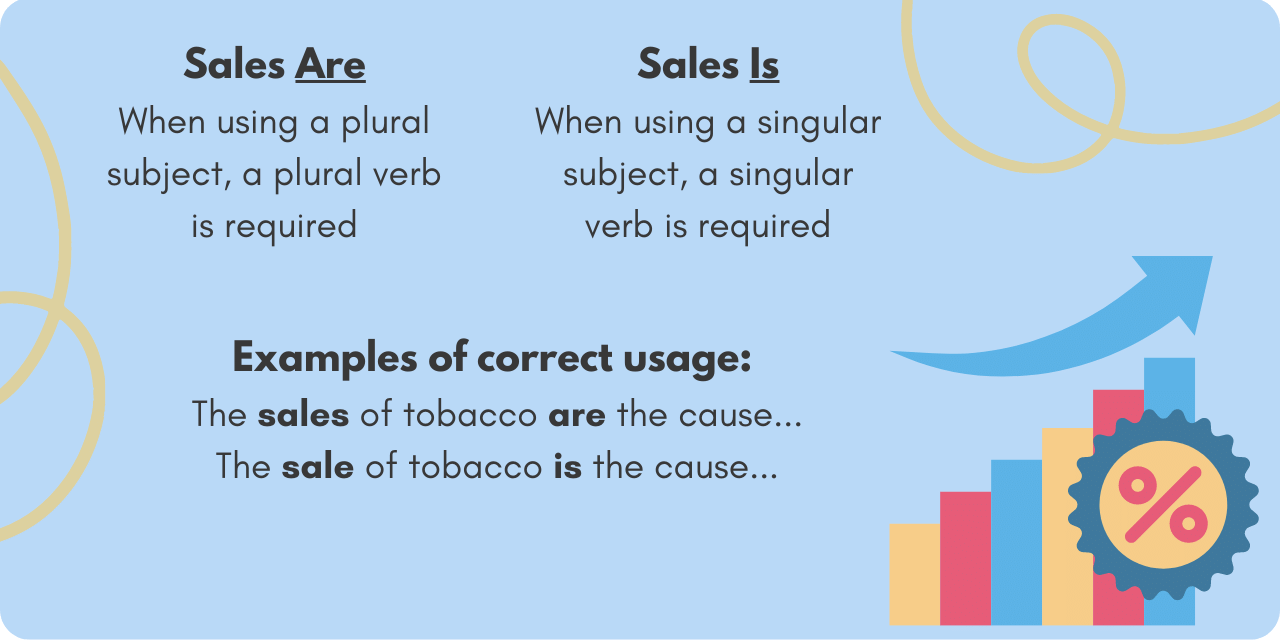John from Buffalo, New York, wrote today to ask a question about subject-verb agreement. Because he is the guy everyone turns to at work when they have a grammar question and because he could not find the answer in three reference manuals, I am happy to help. I don’t want the entire department to think John is slipping.
John asked which of these is correct:
“Tobacco sales is the cause . . . ” OR “Tobacco sales are the cause . . . “
The answer is “sales are.” Here is why:
John has chosen the plural subject sales. It requires the plural verb are.
John and his coworkers may have been confused by the singular word cause. But the verb doesn’t need to agree with what comes after it (in this case, what grammarians call a “subject complement”). The verb needs to agree with the subject, sales.

Here are other ways he might have structured the sentence:
Sales of tobacco are the cause . . .
The sale of tobacco is the cause . . .
Tobacco sales have caused . . .
Tobacco sales cause . . . [Cause is a plural verb; the singular is causes.]
Here are other examples like John’s:
Fortune cookies are the only dessert served.
Model trains are his hobby.
Comice pears are the only fruit we grow.
Mysteries are his favorite genre.
But:
Getting the answers is John’s specialty. [Here the subject is getting–not answers.]






